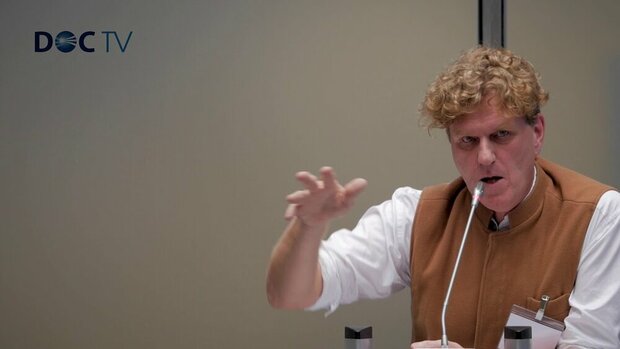He adds that “The whole framework of IR theory is positivistic through and through.”
Following is the full text of the interview:
When have been the religious issues a matter of great in Theorizing of International Relations?
Religious issues and conflicts have not been much theorized about among scholars of international relations. Sometimes these issues come up as a matter of the force of “ideas” as opposed to power politics or economic factors. The question then becomes how “ideas” are to be included in a theoretical model. Since the Iranian Revolution religion has of course made a remarkable return. Modern society was supposed to make religion redundant. That is certainly not what has happened. Yet Western scholars have no good tools for understanding this. Their premise is that religion is a “variable” which can be treated as other variables, but that is certainly not how most people think about it around the world. Religion is not a “variable,” it is an intrinsic feature of human life.
Some argue that if the theory of International Relations means a constitutive and critical theory, then bringing religion into International Relations is possible, but if the theory of International Relations is a explanatory-empirical theory, the theorizing religion in International Relations is not possible and, in fact, there is not theological positivism theory in International Relations. What is your opinion?
Constructivism, critical theory etc, might be more open to “cultural” factors and perhaps also to religion. Yet all practitioners of these approaches are themselves secular and for that reason they are unlikely to understand what they are talking about. Constructivism and critical theory are valuable additions, but not since they discuss religion in a particularly insightful way.
Some scholars such as “Michael Allen Gillespie” in the book “The Theological Origins of Modernity” believe that modernity was not initially against religion, and in later years, as a result of social, cultural and political conditions, it has led to secularism. So Based on this conception, religion is not conflict with modernity, so can it be said that religion is not conflict with the International Relations theory stemming from modernity?
I like Gillespie’s book. He is no doubt correct that modernity has religious roots. In fact, there is still a lot of “secular religion” around. We have made gods out of economic markets, economic growth, “liberty,” “modernity” etc. There might be a way to theorize about all of this. In fact, someone like Carl Becker (“Heavenly city and the eighteenth-century philosophers”) did that already back in the 1930s. But I don’t think this would be “IR theory” properly speaking. IR theorists are rarely proper intellectuals. They tend to simplify and misunderstand.
Some argue that the current International Relations theory cannot explain some of the current phenomena of international relations and we need a religious theory of International Relations, especially with regard to religious issues. What is your opinion? In general, theorizing Religion in International Relations is feasible?
No, I don’t think so. The whole framework of IR theory is positivistic through and through. Everyone – even Constructivists etc. – are looking for dependent and independent variables. What it takes is a much more thoughtful endeavor. You need philosophy, psychology, and perhaps also religious insight.
If theorizing Religion in International Relations is possible, can this religious theory in International Relations explain all the unresolved issues and problems?
I don’t think so. People living in the West – people who have gone through a conversion to secularism – have no way of understanding the role that religion plays in other people’s lives. Making theories about it only compounds the problem. Theories always display the world at a distance. Understanding must come in other ways. Since last year I’m living in Istanbul and working at a university which takes religious studies very seriously. Most of my female students wear hijab. All of my colleagues go to Friday prayer. I’ve started going too but it will take me a while before I understand the role of religion in Turkish society. I’m working on it though.
Interview by: Javad Heirannia
MNA/TT

























Your Comment